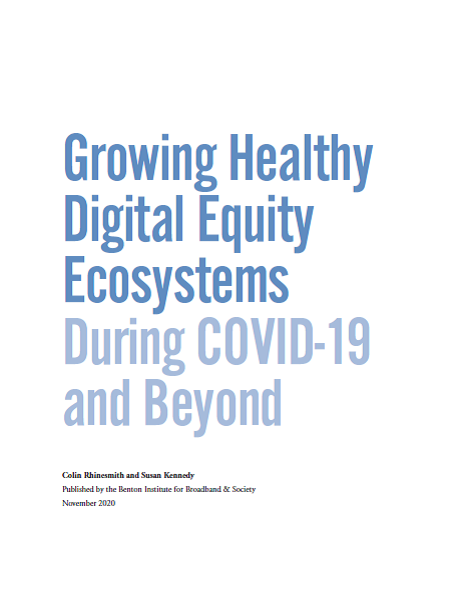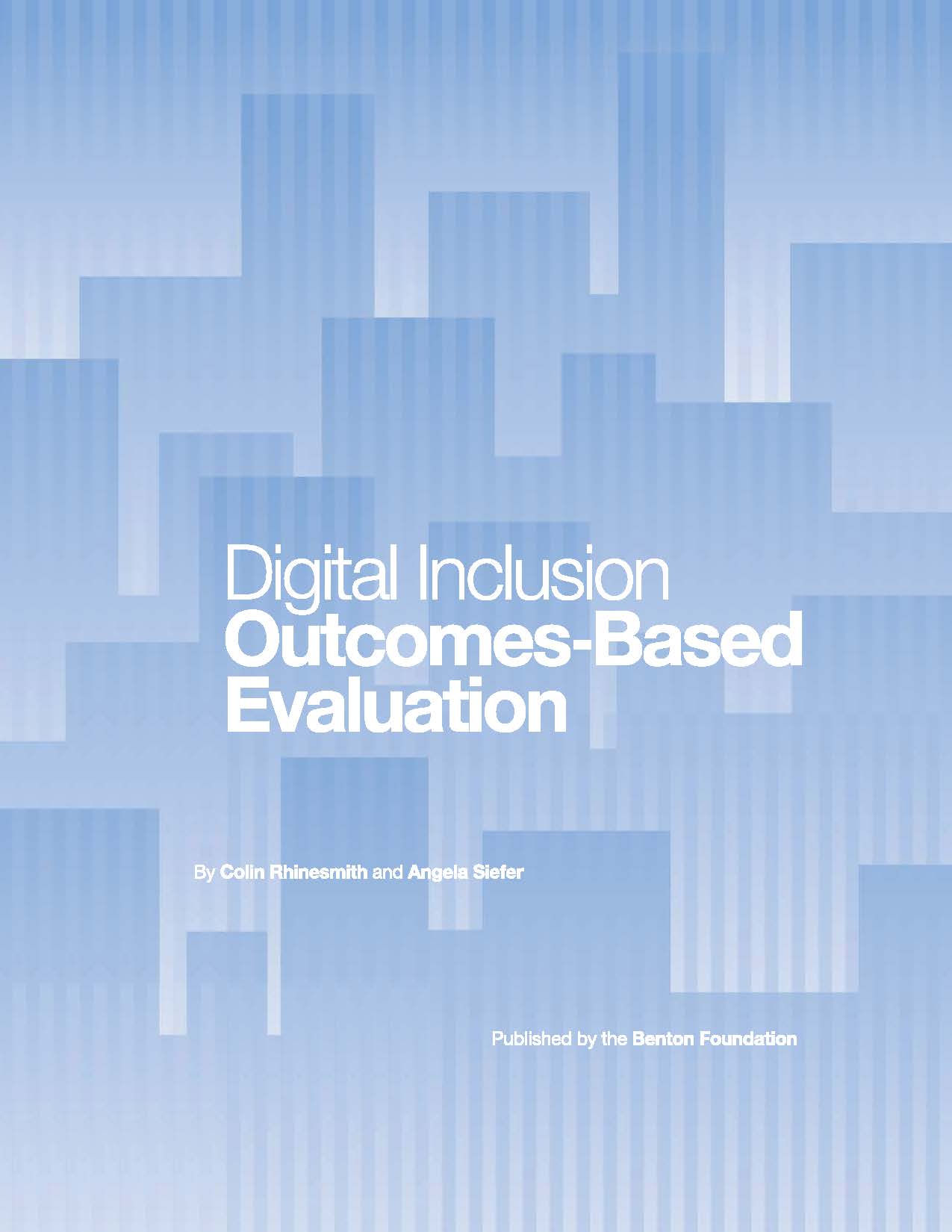Adoption
How are digital inclusion coalitions across the country responding to the triple challenges of the pandemic, growing economic inequality, and racial injustice facing poor communities and communities of color across the country without access to broadband internet at home?

“Middle-skill” jobs make up a large portion of the market, has positions to fill, but suffers from a dearth of trained workers—especially when it comes to digital skills.

This report describes the challenges facing community-based organizations and other key stakeholders in using outcomes-based evaluation to measure the success of their digital inclusion programs and offers recommendations toward addressing these shared barriers.

With library systems increasingly prioritizing equitable access to the Internet and digital literacy training, the role 21st-century libraries serve in promoting digital inclusion has become more prominent.
This report presents findings from a national study of digital inclusion organizations that help low-income individuals and families adopt high-speed Internet service. The study looked at eight digital inclusion organizations across the United States that are working at the important intersection between making high-speed Internet available and strengthening digital skills—two essential and interrelated components of digital inclusion, which is focused on increasing digital access, skills, and relevant content.


